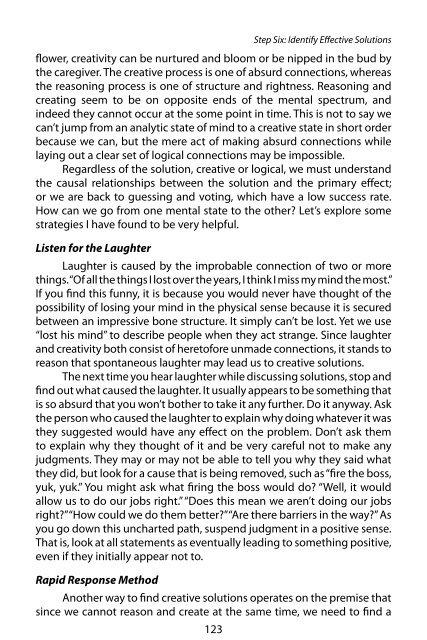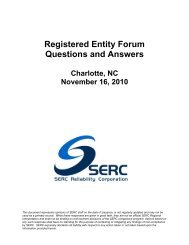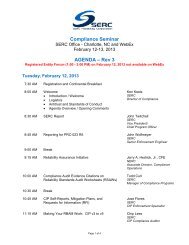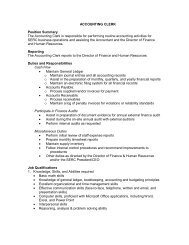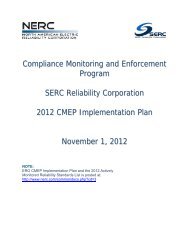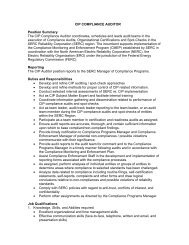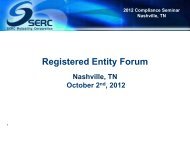RealityCharting e-book .pdf - SERC Home Page
RealityCharting e-book .pdf - SERC Home Page
RealityCharting e-book .pdf - SERC Home Page
- No tags were found...
Create successful ePaper yourself
Turn your PDF publications into a flip-book with our unique Google optimized e-Paper software.
123<br />
Step Six: Identify Effective Solutions<br />
flower, creativity can be nurtured and bloom or be nipped in the bud by<br />
the caregiver. The creative process is one of absurd connections, whereas<br />
the reasoning process is one of structure and rightness. Reasoning and<br />
creating seem to be on opposite ends of the mental spectrum, and<br />
indeed they cannot occur at the some point in time. This is not to say we<br />
can’t jump from an analytic state of mind to a creative state in short order<br />
because we can, but the mere act of making absurd connections while<br />
laying out a clear set of logical connections may be impossible.<br />
Regardless of the solution, creative or logical, we must understand<br />
the causal relationships between the solution and the primary effect;<br />
or we are back to guessing and voting, which have a low success rate.<br />
How can we go from one mental state to the other Let’s explore some<br />
strategies I have found to be very helpful.<br />
Listen for the Laughter<br />
Laughter is caused by the improbable connection of two or more<br />
things. “Of all the things I lost over the years, I think I miss my mind the most.”<br />
If you find this funny, it is because you would never have thought of the<br />
possibility of losing your mind in the physical sense because it is secured<br />
between an impressive bone structure. It simply can’t be lost. Yet we use<br />
“lost his mind” to describe people when they act strange. Since laughter<br />
and creativity both consist of heretofore unmade connections, it stands to<br />
reason that spontaneous laughter may lead us to creative solutions.<br />
The next time you hear laughter while discussing solutions, stop and<br />
find out what caused the laughter. It usually appears to be something that<br />
is so absurd that you won’t bother to take it any further. Do it anyway. Ask<br />
the person who caused the laughter to explain why doing whatever it was<br />
they suggested would have any effect on the problem. Don’t ask them<br />
to explain why they thought of it and be very careful not to make any<br />
judgments. They may or may not be able to tell you why they said what<br />
they did, but look for a cause that is being removed, such as “fire the boss,<br />
yuk, yuk.” You might ask what firing the boss would do “Well, it would<br />
allow us to do our jobs right.” “Does this mean we aren’t doing our jobs<br />
right” “How could we do them better” “Are there barriers in the way” As<br />
you go down this uncharted path, suspend judgment in a positive sense.<br />
That is, look at all statements as eventually leading to something positive,<br />
even if they initially appear not to.<br />
Rapid Response Method<br />
Another way to find creative solutions operates on the premise that<br />
since we cannot reason and create at the same time, we need to find a


